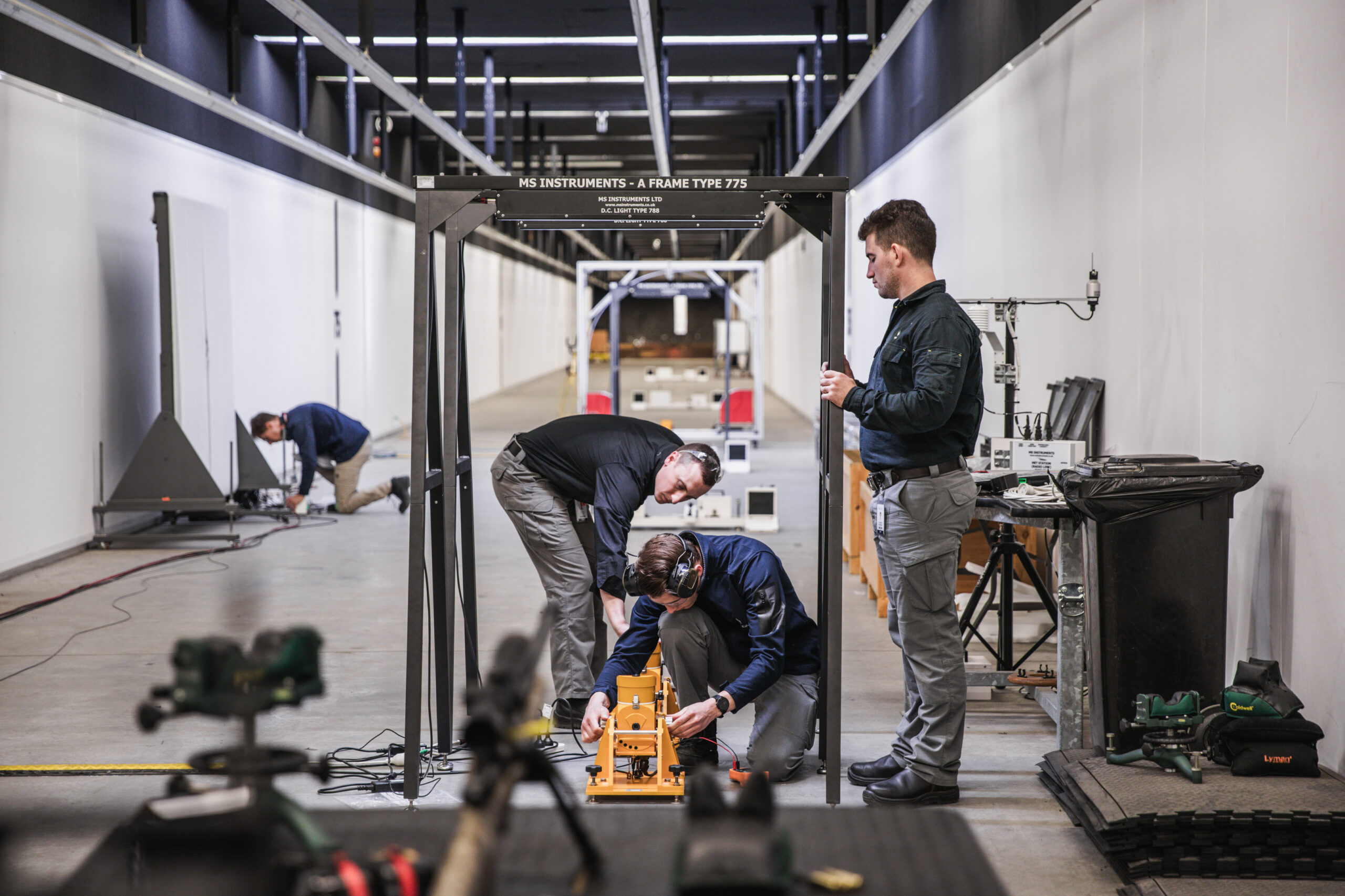NIJ 0106.02 Advanced Ballistic Helmet Resistance Test
The National Institute of Justice (NIJ) Standard 0106.02, also known as the NIJ 0106.02 Advanced Ballistic Helmet Resistance Test, is a rigorous and comprehensive standard designed to evaluate the ballistic performance of helmets intended for law enforcement officers and other public safety personnel. This test ensures that these helmets meet the stringent requirements set forth by the United States Department of Justice to protect first responders from life-threatening ballistic threats.
The NIJ 0106.02 standard is particularly important in today's dynamic threat environment, where ballistic risks are ever-evolving. The testing protocol is meticulously designed to simulate real-world scenarios, ensuring that helmets provide robust protection against a wide range of ballistic threats, including high-velocity rifle ammunition and fragments.
At our laboratory, we pride ourselves on offering the most accurate and reliable testing services for NIJ 0106.02 compliance. Our team of experts utilizes state-of-the-art equipment and follows internationally recognized standards to ensure that every test conducted is precise and meets the highest quality standards.
The testing process involves several critical steps, including specimen preparation, instrumentation setup, data collection, and analysis. Each step is executed with precision to ensure accurate results and compliance with the standard requirements.
| Test Parameters | Standard Requirements |
|---|---|
| Ammunition Type | .30-06 Springfield, 7.62×51 NATO |
| Velocity Range | 2800–3200 ft/s |
| Test Specimen | Helmets designed to meet NIJ Standard 0106.02 |
| Data Collection | Penetration depth, fragment penetration, and deformation analysis |
The testing process is conducted in a controlled environment that replicates the conditions under which a helmet would be expected to perform. This includes using calibrated instrumentation to measure various parameters such as penetration depth, fragment penetration, and deformation of the test specimen. The data collected during these tests provides critical insights into the performance characteristics of each helmet.
Our laboratory adheres strictly to the NIJ 0106.02 protocol, ensuring that all tests are conducted with precision and accuracy. We employ a team of highly skilled professionals who are well-versed in the intricacies of this standard. Our commitment to quality is reflected in our rigorous testing procedures and adherence to international standards.
By choosing us for your NIJ 0106.02 compliance needs, you can rest assured that your helmets will undergo thorough and reliable testing. We provide comprehensive reports that detail the results of each test, ensuring full transparency and traceability. Our services are tailored to meet the specific requirements of quality managers, compliance officers, R&D engineers, and procurement teams.
Why It Matters
The NIJ 0106.02 Advanced Ballistic Helmet Resistance Test is critical in ensuring that law enforcement officers and other public safety personnel are equipped with the most reliable protection against ballistic threats. The standard sets stringent requirements for helmet manufacturers, ensuring that only the highest quality helmets are deployed.
Compliance with this standard not only enhances operational effectiveness but also contributes to the overall safety of first responders. By adhering to the NIJ 0106.02 protocol, we help ensure that public safety personnel have the confidence and knowledge that their equipment meets the highest standards of protection.
The real-world implications of this testing are significant. In scenarios where seconds can mean the difference between life and death, reliable ballistic protection is paramount. The data generated from these tests provides critical information to manufacturers and users alike, ensuring that helmets perform as expected under actual threat conditions.
For quality managers and compliance officers, compliance with NIJ 0106.02 ensures that their organization's procurement processes are aligned with the highest standards of safety and reliability. This not only enhances operational readiness but also supports the overall mission of public safety organizations.
R&D engineers benefit from our testing services by gaining valuable insights into the performance characteristics of helmets. This data can be used to refine design parameters, improve material selection, and enhance overall helmet performance. For procurement teams, this testing ensures that only the most reliable and compliant products are selected for deployment.
Scope and Methodology
- Test Specimen Preparation: Helmets must be prepared in accordance with NIJ Standard 0106.02, ensuring that they are free from defects or modifications that could affect test results.
- Ammunition Selection: The standard specifies the use of specific ammunition types and velocity ranges to simulate real-world ballistic threats.
- Data Collection: Penetration depth, fragment penetration, and deformation analysis are conducted using calibrated instrumentation. This data is crucial for assessing helmet performance.
- Reporting: Comprehensive reports are generated detailing the results of each test, including any deviations from standard requirements.
The testing process is designed to be thorough and accurate, ensuring that every helmet meets or exceeds the stringent requirements set forth by the NIJ. Our laboratory's commitment to quality and reliability ensures that all tests are conducted with precision and accuracy.
Quality and Reliability Assurance
- Calibrated Instruments: We use only the most precise instruments calibrated according to international standards (ISO, ASTM).
- Data Validation: All data collected during testing is validated multiple times to ensure accuracy.
- Repeatability: Our tests are conducted under consistent conditions to ensure that results are repeatable and reliable.
- Expert Review: Each test report undergoes a thorough review by our team of expert engineers before finalization.
Our commitment to quality is reflected in the rigorous testing procedures we follow. By adhering to international standards and employing state-of-the-art equipment, we ensure that every helmet tested meets or exceeds the highest standards of protection.





